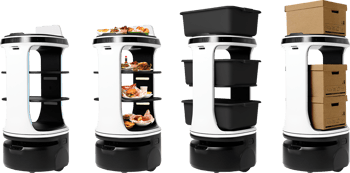Human resources provides formal structures for restaurant workers and protects them, their bosses, and the business when conflicts arise. Most restaurant operators — like most business owners at large — will be happiest when HR operates in the background, smoothly and quietly, so they can focus on the core functions of the establishment. Once hired, workers depend on HR to onboard them. Over time, workers and restaurant operators alike look to HR to set forth and enforce workplace rules, to monitor legal compliance, and to keep records. Workers and managers should be able to turn to HR for questions that pertain to their employment, local and state employment laws, and the policies of the workplace.
What are the benefits of human resources for restaurants
-
Legal compliance and administrative tasks: You’ll be hard-pressed to find restaurant operators who enjoy tracking federal, state, and city labor laws. At a minimum, an HR department or tech solution should give operators confidence that they’re operating inside the law as they hire, train, manage, pay, promote, discipline, and fire workers. Every component of a worker’s employment creates burdens for record-keeping and compliance. Freeing up managers from these tasks lets them focus on the parts of the job they probably enjoy more, which keeps you from burning out your managers and helps your workers feel safe.
-
Conflict resolution: Restaurants are notoriously rough-and-tumble places to work. Some of that is structural: Staffers have to navigate physical spaces where open flames, sharp knives, slick floors, hard alcohol, broken glass, and screwy hours are all part of the routine. But much of it is cultural: Restaurants attract the kinds of folks who prefer a little bit of danger and a lot of human contact in their daily lives. Inevitably, someone is going to get hurt, get upset, or otherwise cross a line, be that a worker, a manager, or perhaps even a customer. Having a robust HR system in place can help address or even head off these problems, creating resilience in the workplace.
-
Quality and efficient hiring: Whether you have an HR person on staff, or opt for a software, you’ve got to have a proper process in place for finding and onboarding new staff. Human resources takes the pressure off of managers by handling onboarding forms, background checks, and pre-screening, ensuring your establishment brings on the best people, leading to strong hires and reducing turnover.
How to use human resources for your restaurant
-
Employee training and tracking: You’ll want to decide how much training HR should handle and how much to delegate to managers or other workers. At a minimum, you’ll want human resources to clearly explain to each employee the expectations to maintain a professional workplace. HR also should assist in getting new hires any needed certifications and to arrange any further training that new hires will need on equipment, procedures, or processes. As the weeks and months wear on, HR will be in charge of keeping track of that worker’s progress and paperwork, be that as discipline reports, performance reviews, sick days, or continuing education.
-
Managing payroll, benefits, and schedules: Paychecks are why workers show up to work in the first place. Accordingly, many HR softwares track and administer payroll as well as handle schedules. Restaurant scheduling has been a headache for kitchen managers since the dawn of time, so softwares have evolved to make scheduling easy and transparent for workers to take time off or to swap shifts. The best HR solutions are those that let every worker know how much money to expect in their check, when they’re expected to be in the door, and when they get to take a vacation.
[Photo by Anna Tarazevich from Pexels]





